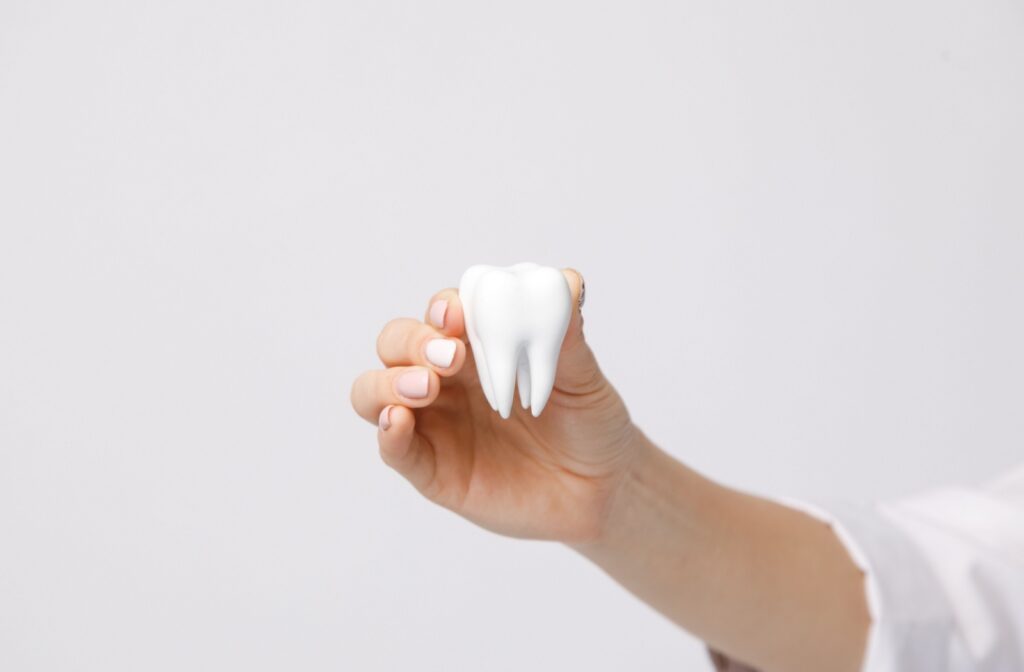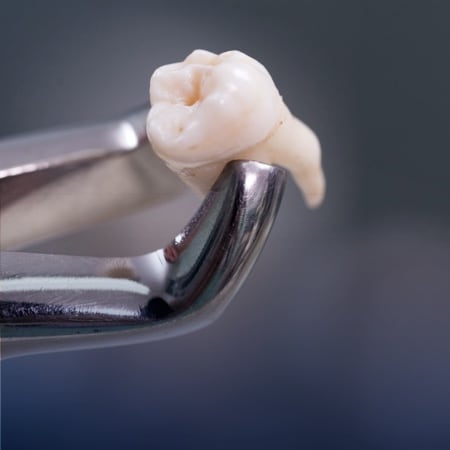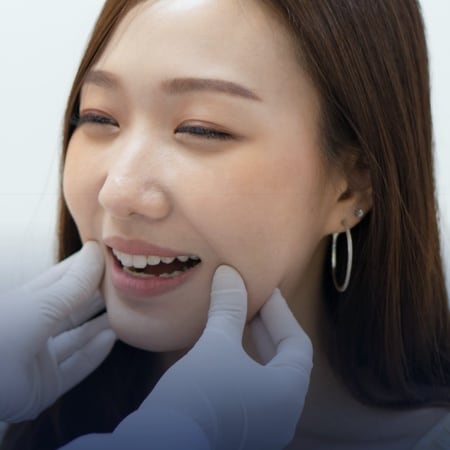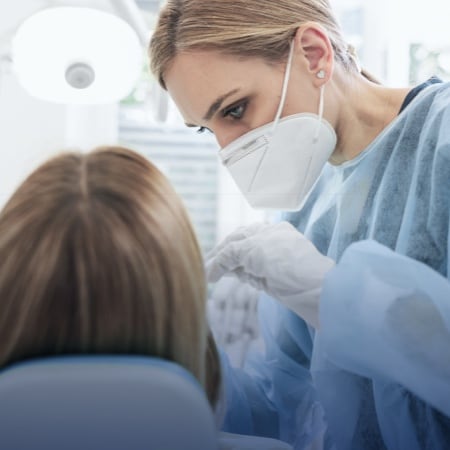Wisdom tooth removal is a common oral surgery procedure many people undergo to help their teeth and gums stay healthy. But for some, the question lingers: after these teeth are removed, can they grow back? The idea of wisdom teeth regrowing may sound alarming, especially for those who have already endured the removal process.
Fortunately, wisdom teeth do not grow back once they have been removed. However, in rare cases, a person may have extra teeth, known as supernumerary teeth, that can emerge in the same area where wisdom teeth were located. Your oral surgeon can identify these teeth using X-rays.
Understanding Wisdom Teeth
Wisdom teeth, also known as third molars, are the last set of molars to develop. Typically emerging in your late teens or early twenties, these teeth are notorious for causing problems.
Evolutionarily, wisdom teeth were helpful to our ancestors who needed extra chewing power for their rough and fibrous diets. However, as human jaw structures evolved to be smaller and diets became softer, wisdom teeth have become largely unnecessary—and, for many people, problematic.
Why Are Wisdom Teeth Removed?
Not everyone needs their wisdom teeth removed, but for those with complications, an extraction may be necessary. Common reasons for wisdom teeth removal include:
- Impacted wisdom teeth: When wisdom teeth don’t fully emerge and become trapped beneath the gums or jawbone, they can cause pain, swelling, and even infections.
- Crowding: The emergence of wisdom teeth can push other teeth out of alignment, undoing years of orthodontic work.
- Tooth decay and gum disease: Since wisdom teeth are located toward the back of the mouth, they’re harder to clean, leaving them prone to cavities and gum disease.
When oral surgeons recommend wisdom teeth removal, their goal is to protect your oral health and support a lifetime of comfortable, functional teeth.
Can Dentists Remove Wisdom Teeth?
In Ontario, family dentists are legally permitted to remove wisdom teeth. However many patient prefer to be treated by an oral surgeon given the severity of possible complications that can result, including:
- Severe pain and swelling of the face, jaw, and neck.
- Infection within the affected area.
- Nerve damage.
- Damage caused to surrounding teeth, sinuses, and jaw.
- Painful dry socket.
Oral surgeons perform thousands of wisdom tooth extractions each year. In addition to their experience, they have all received specialty training and education that minimizes the chances a patient will experience any of these issues to begin with.
The Extraction Process
Wisdom teeth removal is a routine oral surgery tailored to each patient’s unique needs. Performed by a skilled oral surgeon, the procedure involves:
- Examination: X-rays pinpoint the position of the wisdom teeth and whether they’re impacted or causing issues.
- Anesthesia: Local sedation, or general anesthesia, is used for a comfortable and pain-free experience.
- Extraction: An oral surgeon skillfully removes the wisdom teeth.
- Healing: After removal, stitches may be placed to aid healing, and patients will be given aftercare instructions to support a smooth recovery.
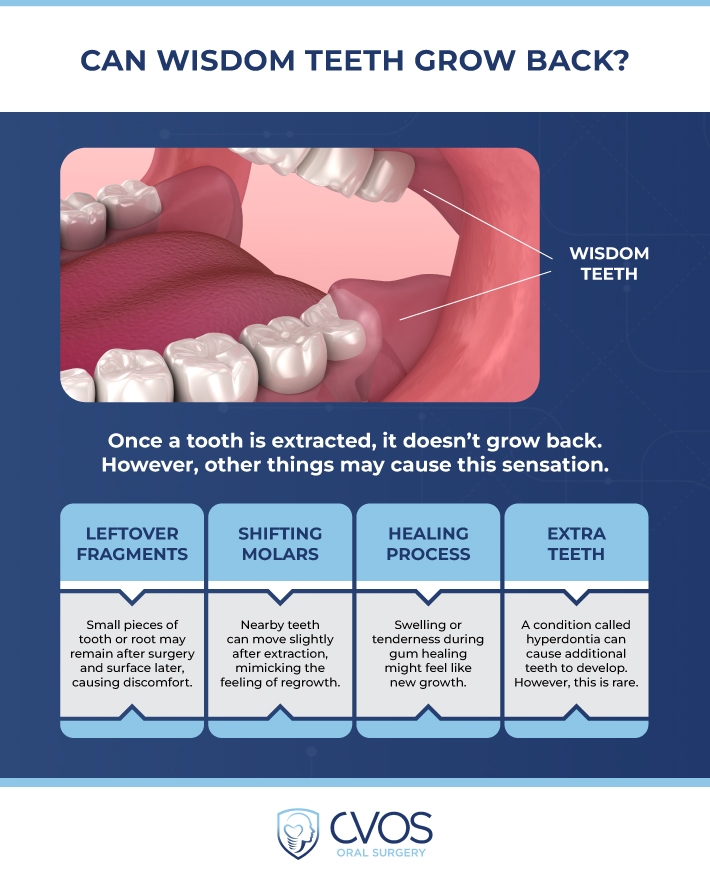
Why Does It Feel Like My Wisdom Teeth Are Growing Back?
Once a tooth is extracted, the body does not regenerate a replacement tooth. However, some scenarios can mimic the sensation of “regrowth,” leading many to believe their wisdom teeth are returning.
The feeling that wisdom teeth are growing back often stems from other changes or issues in the mouth. Here are some possibilities:
- Residual roots or teeth fragments: During surgery, small fragments of the tooth or root may be left behind. While oral surgeons take every precaution to remove all remnants, in rare cases, these fragments can shift or surface, causing discomfort.
- Nearby molars shifting: Post-extraction, the teeth around the vacant area may shift slightly, creating sensations that are sometimes mistaken for new tooth growth.
- Residual healing issues: Gum tissue can take time to fully heal after surgery. Swelling or tenderness during the healing process might be confused with regrowth.
- New supernumerary teeth: Rarely, people may have an extra set of wisdom teeth or additional molars due to a condition called hyperdontia.
Understanding Hyperdontia
Hyperdontia is a rare dental condition where extra teeth, called supernumerary teeth, grow in the mouth. While hyperdontia is unusual, it could explain why someone feels like their wisdom teeth are returning.
These extra teeth can emerge in the same area where wisdom teeth once were. They aren’t regrown wisdom teeth but entirely new ones caused by a genetic anomaly.
If you suspect you have hyperdontia or notice any unexpected teeth developing post-surgery, talk to your oral surgeon. They can evaluate the situation and create a treatment plan if necessary.
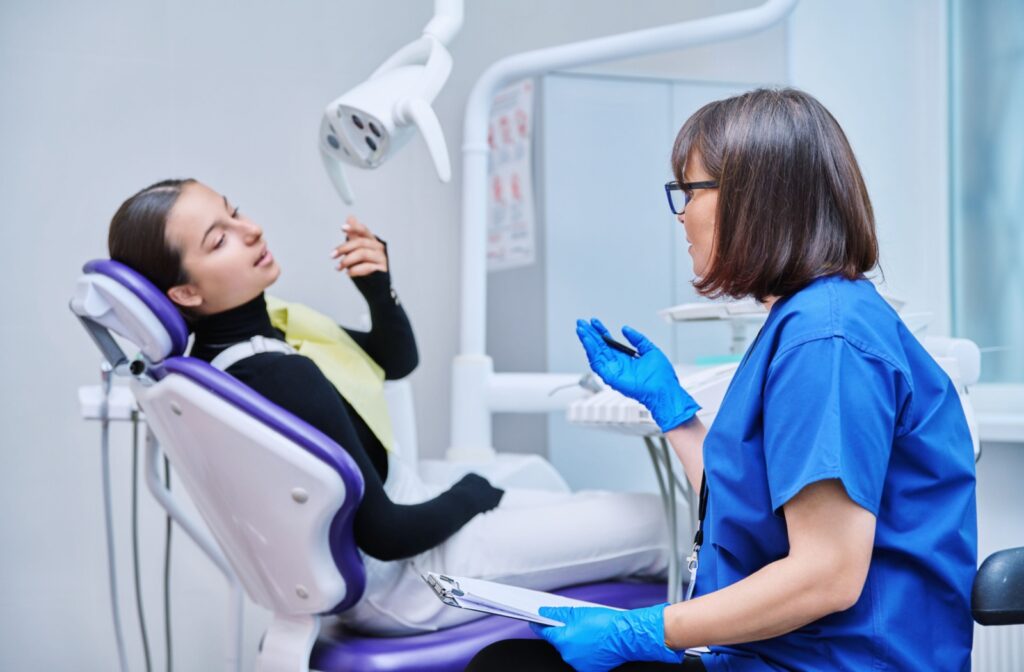
Prevention & Aftercare Post-Extraction
While preventing wisdom teeth from growing back isn’t a concern, maintaining proper aftercare and monitoring for potential issues is essential to ensure your comfort and oral health.
Tips for a Smooth Recovery
- Follow your doctor’s instructions: Adhering to prescribed care promotes proper healing and can help you avoid complications like dry sockets.
- Manage your discomfort: Use prescribed pain medication or over-the-counter options as directed. Ice packs can help reduce swelling.
- Maintain good oral hygiene: To keep the area clean, gently rinse your mouth with warm salt water starting 24 hours after surgery.
- Watch for symptoms: Monitor for prolonged pain, swelling, or anything unusual, like a hard bump in the extraction site.
- Get regular checkups: Regular visits with your oral surgeon or dentist can detect potential post-surgical concerns.
Learn More About Wisdom Teeth Removal
If you’re facing wisdom teeth removal or experiencing post-surgical concerns, partnering with a qualified oral surgeon is essential. Oral surgeons receive specialized training, equipping them to handle complex cases with precision and care. At CVOS Oral Surgery, we’re here to answer your questions and provide care you can trust. Whether you’re considering wisdom teeth removal, noticing unusual symptoms, or simply want reassurance about your oral health, our team is here for you. Contact us today to learn more.


